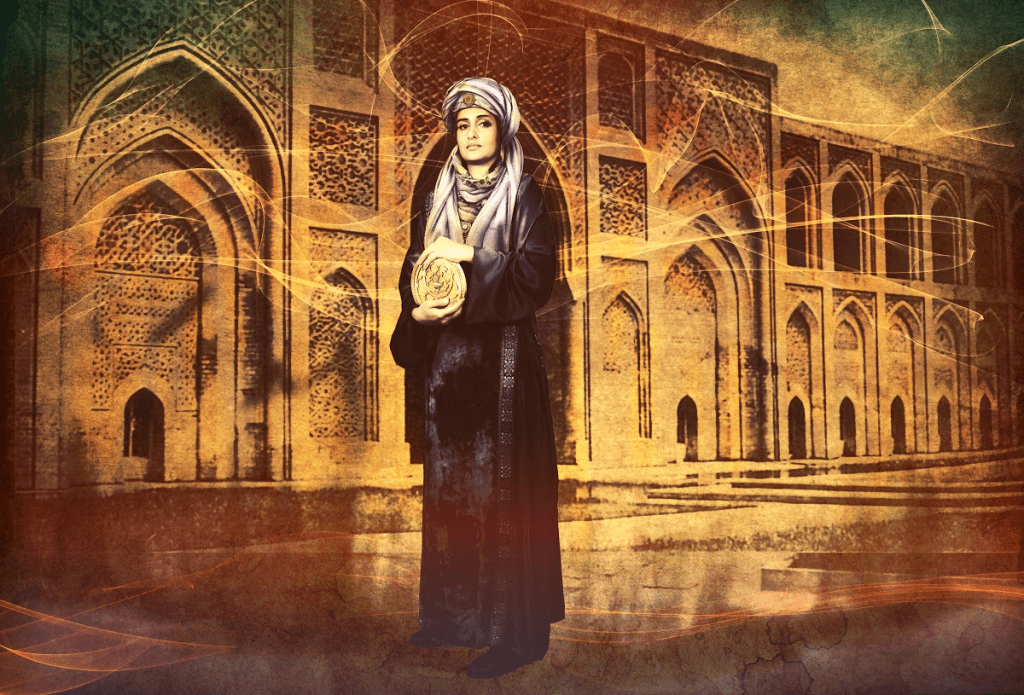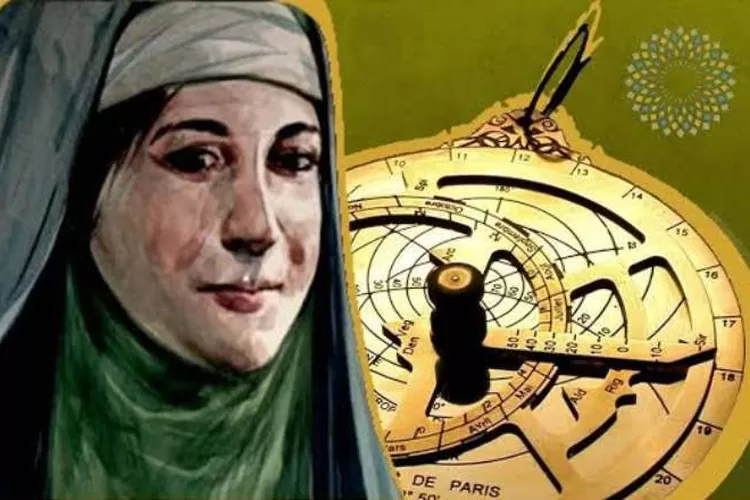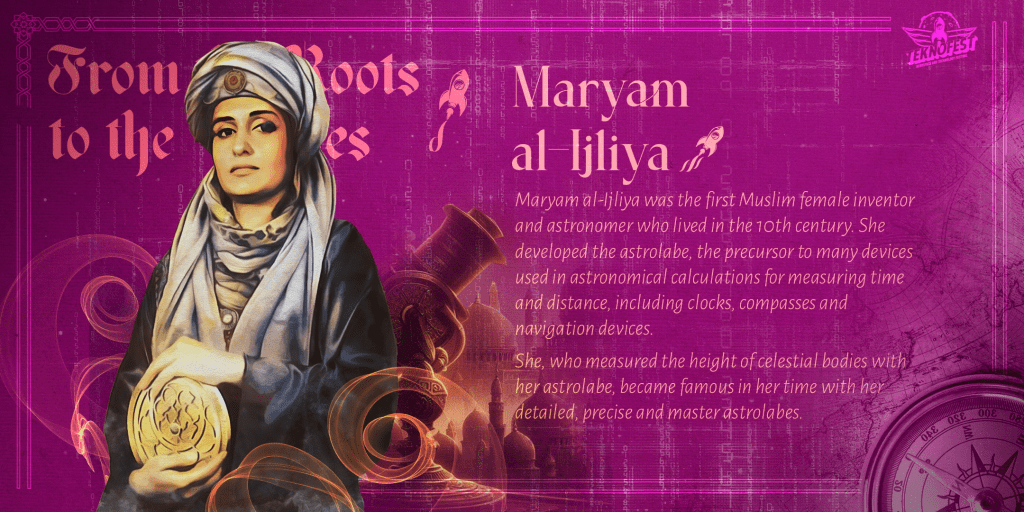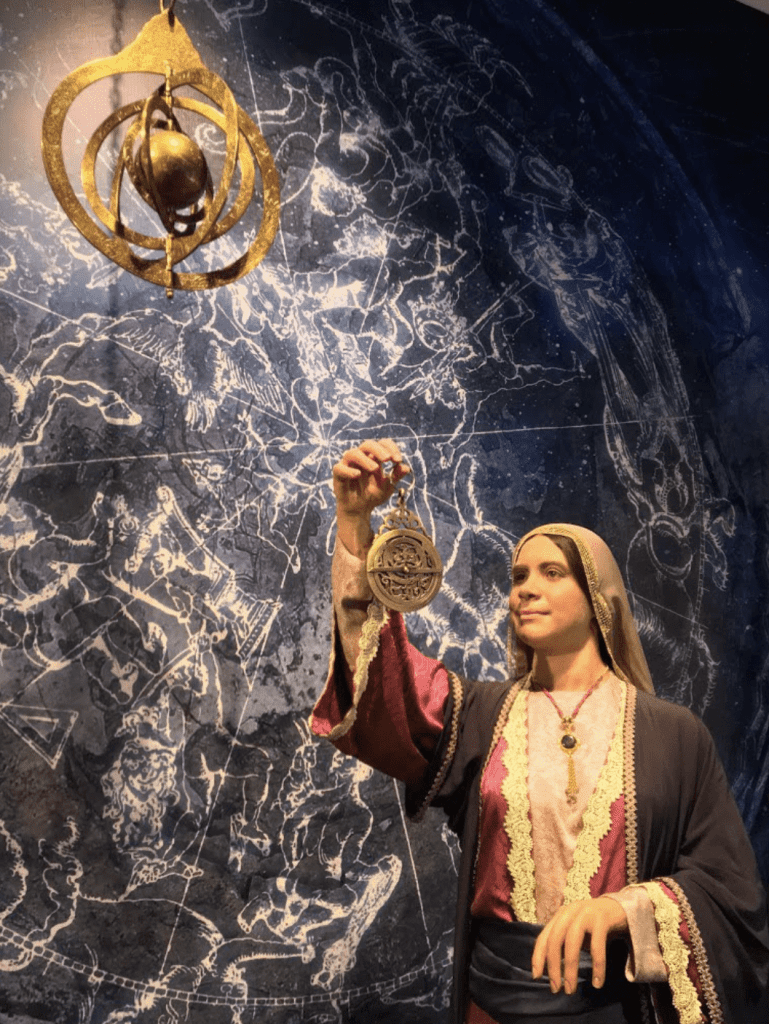In a time when the contributions of women were rarely recorded, one woman in 10th-century Syria defied expectations and left a mark on the heavens literally. Maryam al-Ijliya, also known as Maryam al-Asturlabi, was not just a maker of scientific instruments. She was a master of the stars, a skilled artisan, and a quiet trailblazer in the world of astronomy.

A Woman of Science in the Islamic Golden Age
Maryam lived in what is now known as Aleppo, Syria, during the height of the Islamic Golden Age a period of flourishing intellectual and cultural achievements in the Muslim world. Science, philosophy, medicine, and mathematics were advancing rapidly, and astronomical research held great importance for both scientific exploration and religious practice.

Into this world stepped Maryam al-Ijliya, a rare figure among the male-dominated circles of scholars and inventors. Taught by her father, who was himself a renowned maker of astrolabes, Maryam quickly became known for her exceptional craftsmanship. She not only inherited a family tradition she elevated it.
Video:
Who was Muslim astronomer Mariam al-Asturlabi?
The Astrolabe: Ancient Tech for Mapping the Sky
The astrolabe was the most advanced astronomical tool of its time. Functioning like a handheld model of the universe, it allowed users to determine time, calculate the positions of stars and planets, measure altitude, and even assist in finding the qibla the direction of Mecca for daily prayers.
Maryam’s astrolabes weren’t just scientific instruments. They were beautiful, precise, and works of art in their own right. Her designs were admired for their functionality and elegance, making them highly sought after by scholars, navigators, and religious leaders.
Her reputation eventually earned her a place at the royal court of Sayf al-Dawla, the Hamdanid ruler of Aleppo. Working under royal patronage, she became a trusted and respected figure an astonishing accomplishment for a woman in the 10th century.

Legacy Written in the Stars
While no physical astrolabe signed by Maryam has survived, her name and accomplishments lived on through the writings of her contemporaries. Historians have noted her skill and influence, and in modern times, she has received renewed recognition as a pioneering woman in science.
Video:
Maryam Al-Ijliya Al-Astrulabi, Master Astrolabe Maker, 10th Century (1001 Inventions)
Perhaps the most symbolic tribute to her legacy came in the form of an asteroid named 7060 Al-Ijliya in her honor. This celestial recognition not only reflects her contributions to astronomy but ensures her name literally orbits the Earth, a fitting reward for someone who spent her life helping others understand the cosmos.
Inspiring Future Generations
Maryam al-Ijliya’s story stands as a reminder that science and innovation have never belonged to one gender, culture, or era. Her achievements highlight the often-overlooked role women have played in shaping our understanding of the universe.
In today’s world, where women in STEM (Science, Technology, Engineering, and Mathematics) are still fighting for visibility and equality, Maryam’s life is both an inspiration and a call to action. She didn’t wait for permission to pursue her passion she followed her intellect and her craft, carving out a place in history with precision and grace.

Conclusion: A Legacy Beyond Time
Maryam al-Ijliya may have lived over a thousand years ago, but her impact still echoes. She bridged science and art, religion and innovation, tradition and progress. In her hands, brass and metal became tools of navigation and instruments of wonder.
She charted the stars and in doing so, illuminated a path for others to follow.



